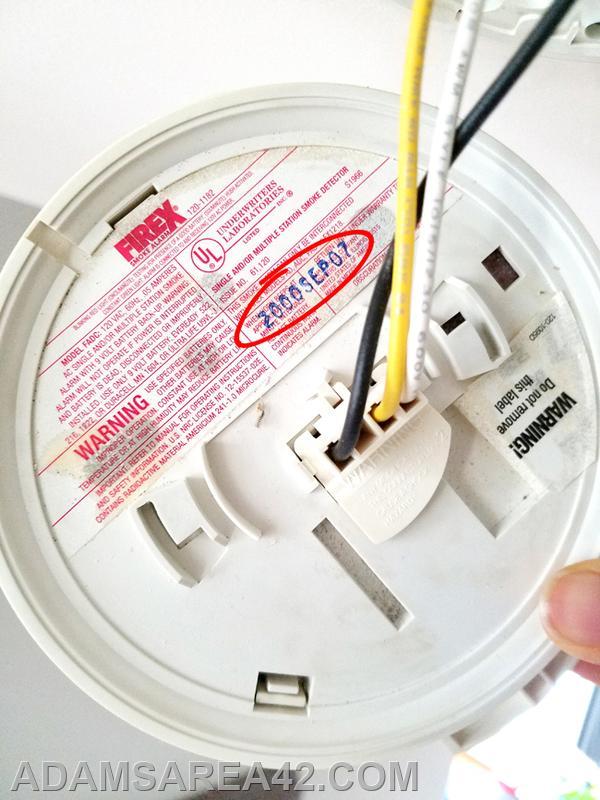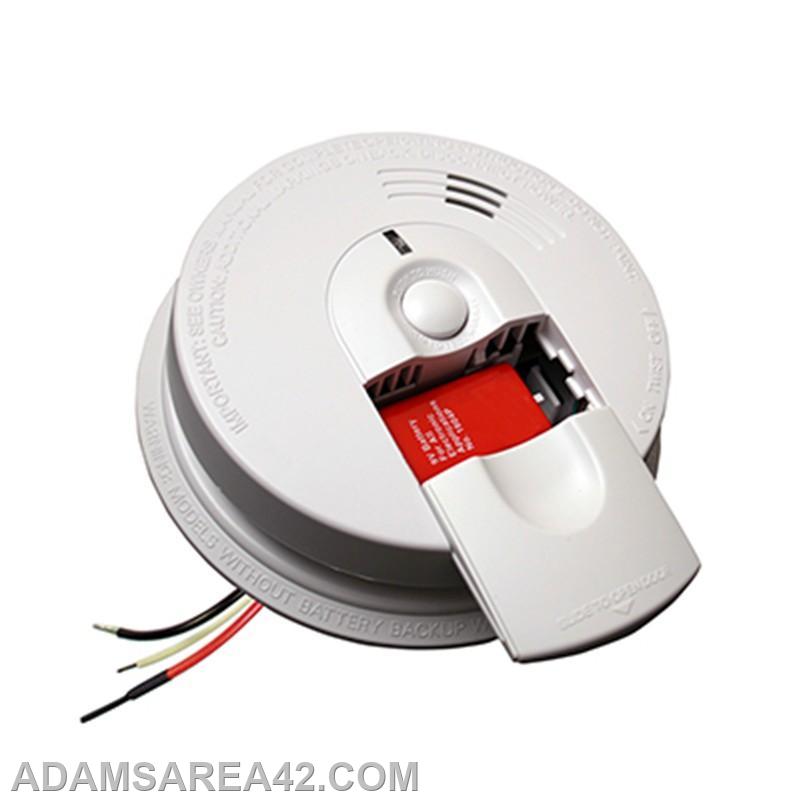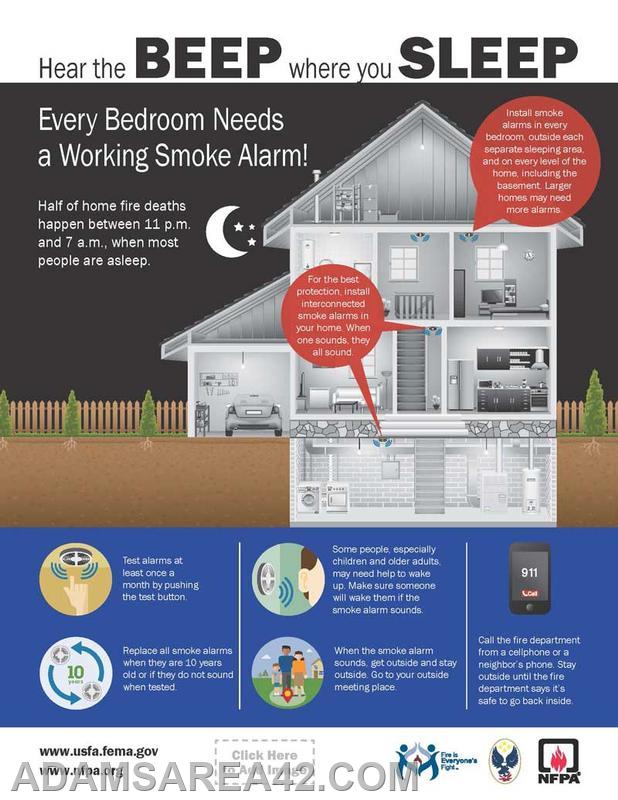| By Captain Doug Mellinger | |
| October 9, 2023 | |
| For our day two post of Fire Prevention Week, we will discuss home smoke detectors. When most people think of smoke detectors, they think of the simple "Change your clocks, change your batteries", which is good. Yes, every spring and every fall, when you change your clocks for daylight savings time, you need to change the battery in your smoke detectors. This is important. Working smoke detectors save lives! The risk of dying in a fire is cut by more than half when a home is equipped with working detectors. Yet, almost 1,500 people die in house fires where the smoke detectors were present but not working. This can be attributed to the following various reasons: • Not hearing the alarm on another floor of the house. It is also recommended by the NFPA that detectors all be linked together so that when one sounds in another part of the house, it alerts them all. • Not enough detectors or improper placement. There should be at least one detector on every floor and one in every bedroom. The detectors should be placed on the ceiling or high on the wall. • Not changing the batteries regularly. It’s simple, don’t forget to change the batteries every spring and fall when you change your clocks. • Hard wired systems also have batteries. Many people believe that because a system is wired through the electric of the house, there is no need to change the batteries. This is a common misconception we encounter when responding to false alarms. If the power to your home were to go out, which can easily happen due to storms or an electrical problem in your home, the smoke detectors would not operate without the battery back-up. These still need changed, too. • Detectors do not last forever. The common standard life expectancy for smoke detectors is ten years. Most detectors will have a production or installation date stamped on the back of them. When you inspect them and change the batteries, check the date. If it is more than 10 years old, it needs replaced. Some detectors will not have dates on them and you or the technician should write the installation date on the back with a permanent marker. This is also something that is often overlooked. |
|


